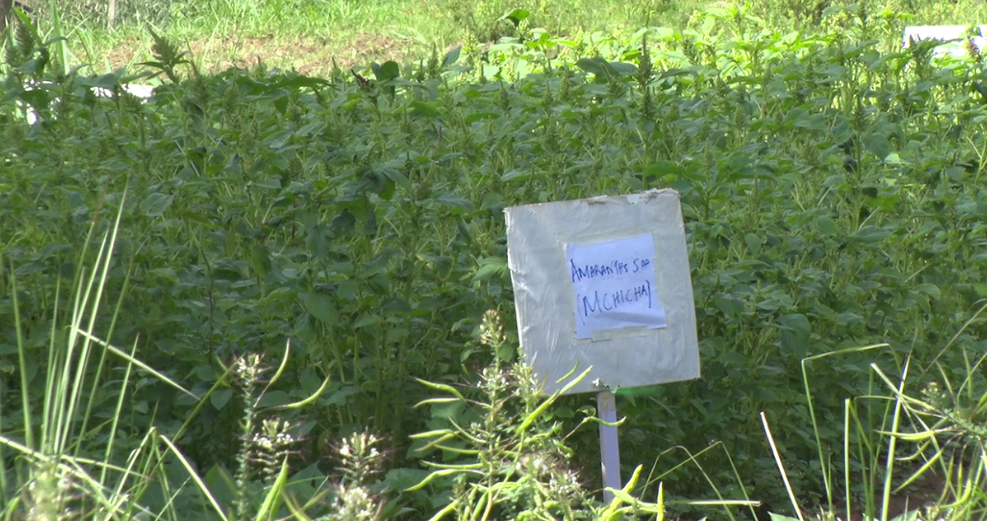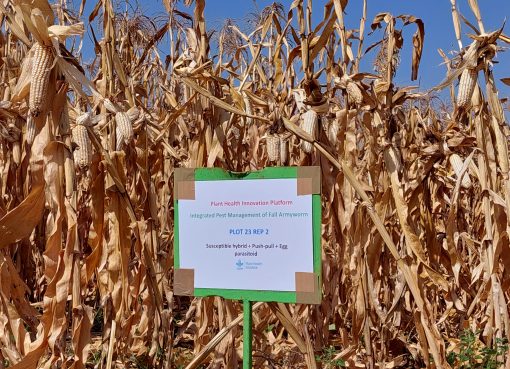Non-governmental Organisations have teamed up to promote production of indigenous vegetables as an alternative source of income for rural households.
Rural Outreach Africa, SNV Netherlands and World Vegetable Centre (WVC) are implementing the Veggies for Planet and People Project with funding from IKEA foundation in Kakamega, Vihiga and Kisumu counties.
Through the project, farmers in the identified areas have been organised through Village Based Networks (VBNs) where they get support through training and best farming practices.
Speaking during a Field Day at one of the selected VBNs farms in Kabras, Regional Coordinator of Rural Outreach Africa Doreen Anjawa said many people are changing their consumption habits by embracing traditional vegetables, which are pesticide free.
“Vegetables are consumed on a daily basis, therefore the demand for consumption of indigenous vegetables creates a ready market that farmers can tap from to transform their lives,” she disclosed.
She noted that they encourage production of the vegetables using organic manure and minimizes use of chemicals and in-organic fertilizer in order to produce clean vegetables that can be consumed locally and also for export.
The organisation has set up 31 VBNs across the three counties who in turn help farmers to cultivate vegetables.
“If farmers put in a lot of effort, the project will transform their lives and lift them from poverty and give them money. We encourage them to embrace diversification in their traditional vegetables as well as have a list of buyers ready to buy indigenous vegetables produced through organic manure,” she noted.
The Agriculture Field Day was held at one of the farmers, Mildred Anyango, who was supported to produce indigenous vegetables in Indulusia Village, West Kabras.
Anyango produces more than 200 kilograms of different types of indigenous vegetables per day from her 5 acres’ piece of land.
She supplies to E-Mboga an online marketing agency in Kakamega, Golf Hotel and sells some at the retail market.
She says the demand for the vegetables is high and fetches high prices when supplied to high consumption entities such as Golf Hotel unlike when sold at the retail market.
“Golf Hotel buys more from us, for instance, they might request for 50 kilograms in a day and the next day they make an order for 100 kilograms. They pay well with at least Sh100 per kilo which is much higher than when sold in the retail market at a low price of Sh 20 per kilo,” she pointed out.
To meet the high demand, the VBNs in Kakamega have mobilized members and those who are non-members, but grow vegetables, to form a co-operative society in order to pull resources and get enough vegetables for the market.
However, Anyango says it might be a problem on how other farmers will produce their vegetables as they strictly stick to organic farming.
“But the problem is that we produce our vegetables naturally, free from chemicals. We mostly use organic manure hence most buyers prefer them. So the problem of sourcing from other farmers will be whether they will stick to producing the vegetables through organic means,” she added.
She said they have been trained to produce organic pesticide from plants which they spray on the vegetables to kill pests and control diseases.
Anyango urged the county government of Kakamega and surrounding institutions to give them tenders to supply vegetables before sourcing from other places outside the county.
The Kenya Climate Smart Agriculture Project (KCSAP) is also supporting farmers in the grassroots and organized through Community Driven Development Committees to improve their lives.
Malava Sub County Agricultural Officer Roselida Ogutu said the farm will be a model for production of indigenous vegetables advising farmers to train others while promising that the department will continue to support farmers even when the project comes to a close.
By Moses Wekesa





